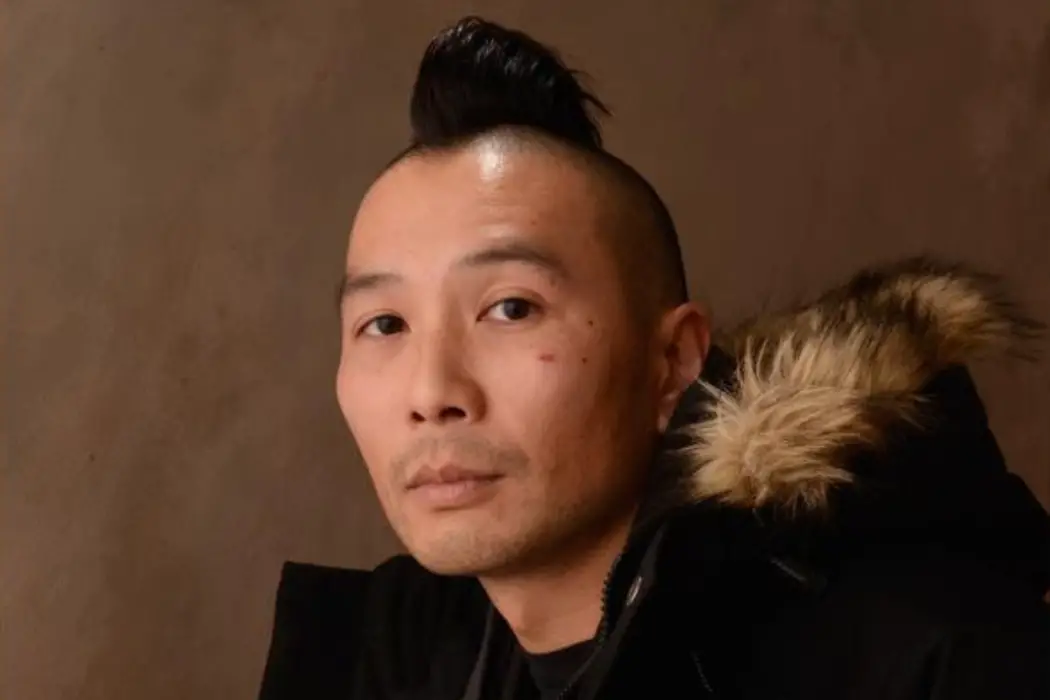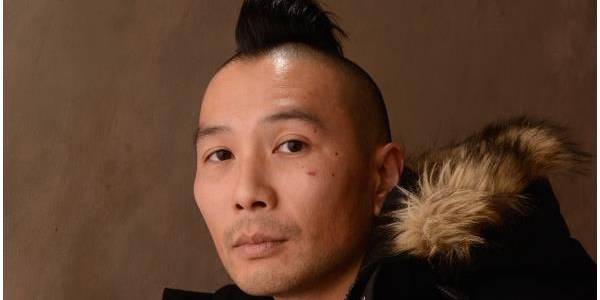“The American Dream is Very Much About Getting Yours”: Interview with Evan Jackson Leong, director of SNAKEHEAD

Former film student from Scotland turned writer and film reviewer.
For $50,000, Chinese immigrants can arrange to be smuggled into the United States to start a new life. $50,000 in debt, which these penniless immigrants must then pay through labor such as prostitution, cleaning, cooking, and anything else their smugglers – known as snakeheads – tell them to do. It’s a lucrative business. In Evan Jackson Leong‘s latest effort Snakehead, a Chinese immigrant finds herself in this exact situation and begins a journey through the seedy underbelly of Chinatown and the constructs of American idealism.
Based on the true story of Sister Ping, an infamous human trafficker who operated from the early 80s to the 2000s – and who reportedly earned around $40 million from smuggling – Snakehead sees Chinese immigrant Tse smuggled into America to find the daughter she lost several years ago. Burdened with a debt of $57,000, Tse is put to work in a variety of different jobs from prostitution to making dumplings in a local restaurant in order to pay what she owes. Sister Tse, however, is not content with this life, and soon rises up the ranks of the criminal family who brought her in. In doing so she gets caught in the fraught family drama of stubborn matriarch Dai Mah and her sons, all vying for a place at the table, and none of them too happy about the new outsider threatening to take their place.
In Sister Tse’s rise – a sort of Breaking Bad-esque transformation into hardened criminality – is the culture clash of American idealism versus traditional Chinese values – individualism versus community. For as Tse begins to make a name for herself, she must make decisions about this American Dream, and whether she’s willing to sacrifice everything for it.
“I’m glad you got that,” says Evan Jackson Leong when I put this notion to him. “Asian culture is really more about the whole and America is very much about the individual. The American Dream is very much about getting yours.” We’re meeting over Zoom to discuss the movie and Leong is in good spirits. Throughout our conversation, he is cheery and enthusiastic. It’s clear this means a lot to him. “It’s been quite a journey but I’m happy to be here and to be able to talk about it.”
Snakehead is Jackson‘s first feature film, having made his career with documentaries such as 2013’s Linsanity and 1040: Christianity in the New Asia. It was a jump that was a long time in coming, given that Jackson had spent over a decade making Snakehead. “I first wrote the script in 2008, to impress a girl,” he laughs, “it was a different era for me as an artist and as a filmmaker.” In the ensuing years, he took time away from the script to make Linsanity, but he never forgot about the project. He had numerous attempts to raise money, some of which failed, but ultimately he crowdfunded the project and officially got the cameras rolling in 2017. “The pandemic really added an extra two years to this coming out,” he laughs. He got there in the end, though.

Why this project? I ask. What is it about this project that compelled him to spend over a decade making it? “I’ve always been a fan [of gangster films],” Leong says, “I grew up watching The Godfather, Scarface, Goodfellas, Hong Kong gangster films. I’ve always wanted to do a story in that genre, in that place in the underworld. When I heard about the true story of Sister Ping and New York Chinatown I knew that was the story I wanted to tell. Like, if I get one shot, one chance to make a movie, this is the one I want to do.”
As far as gangster films go, Snakehead is far from typical genre fare. What could have been a by-the-numbers movie instead turns out to be a bold and brutal insight into the inner workings of a Chinatown criminal organization. Far from the usual escalating bloody violence and gang warfare, Leong is more interested in the plight of immigrants who come to America seeking escape, and the culture clash of arriving in a country whose values are so different to your own. It’s intelligent, insightful filmmaking, shining a light on a culture that doesn’t often get examined in this way. “You have these cultural clashes,” Leong says, “when you come from a certain idea of what community and family is, and then you go to another place and it’s not really about that. Ultimately Dai Mah is playing both sides. She has her own family – her true family – but at the same time she dangles that idea of family in this American environment.”
Dai Mah. The badass matriarch of the family is not to be messed with. Jade Wu brings a certain gravity to the role, infusing Dai Mah with a stoicism and steely gaze which has enabled her to climb to the top of the mountain. It’s an excellent performance and is reminiscent of Jacki Weaver‘s Smurf from David Michôd‘s Animal Kingdom back in 2010; a tough mother running a business while trying to reign in her wayward sons. “What drew me in the most was this idea of a Chinatown matriarch, a strong Asian woman behind the scenes. I have a lot of strong Asian females in my life and I wanted to pay homage to that. The women in our culture ultimately hold it all down, keep the community together. I mean, men are the figureheads, the faces, but women are the ones who are actually running the household.”
I tell Leong I loved the world itself, the characters of Dai Mah‘s sons Rambo and Pai Gwut, the former played by Fast & Furious alumni Sung Kang. I envisioned a Sopranos-style HBO show where these characters are all given room to breathe. Does he feel there’s more to say on Chinese immigrants and their impact on the community? “The world is so rich,” he responds, “there’s so much more to explore and do. I was inspired by Sister Ping and the 80s era, but the reality is right now Chinese people aren’t coming to America. It’s not the land of opportunity. Why struggle to come here when China has a lot more opportunity? The idea (with Snakehead) is to play with the concept of the American Dream as a myth that Western cinema and the media have portrayed.”

It’s a compelling argument and one which Leong lays out well in Snakehead. For as Sister Tse begins to pay off her debt, and then eventually amass her own wealth, her descent into the underbelly of Chinatown sees her betray those closest to her, causing death and destruction in her wake. She has finally attained the fabled notion of the American Dream, but at what cost?
The timing couldn’t have been better for Leong; Snakehead arrives in cinemas during one of the most tumultuous eras in living memory, a time when immigration is a hot button topic on everyone’s mind. How aware was he of that when he was making the film, at a time when President Trump still occupied the White House? “We were actually in production when Trump came into office,” Leong says. “I was fortunate to be just so ingrained in the film that I didn’t have time to worry about what was happening in the news! I knew these issues were important for me ten years ago, but now with all these anti-immigration and nationalist elements coming to light, this is a story they don’t want to hear and so it becomes a lot more controversial. If anything it’s important for art to find something to say about our times and with my work I want to do something you can watch in 150 years time and be like ‘oh, that’s a snapshot of this time period and this culture.'”
Trump, of course, targeted Mexicans specifically during his many diatribes. There is a crossover in Snakehead here, where coyotes – the Mexican equivalent of snakeheads – are recruited to help Chinese immigrants over the border. Was the idea of different immigration cultures something Leong specifically wanted to include?”I did a ton of research,” Leong says, “and the more I learned about migration, (the more it) changes from culture to culture. It’s a constant in human civilization that people move, right? People move for better opportunities, people leave because they have to leave their homes, because something’s happening, and I find the story of that migration to be both heroic and naïve. It really all comes down to survival. That, to me, is a really exciting story. I mean, I’m sixth-generation Chinese, and when I think about what my ancestors did to come here, it blows my mind. The only way I can relate to that now is like if Elon Musk said ‘hey, you can go to Mars and be a billionaire!'”
I ask Leong if he felt there was a responsibility for him to make a movie about immigration, given his own cultural background. Sure, there have been many movies about immigration over the years, but with Leong the story is personal. He has an important connection to it. “Sure, absolutely. Let’s be honest, filmmaking is a privilege. For any first-generation immigrant to get into the arts is really not easy to do. You need to have safety nets, you need to have opportunities. Being sixth-generation I didn’t have that many opportunities but I had more than the average immigrant. Growing up in that community it’s obviously very important to me, but it’s also something I’m very passionate about. I’ve always been passionate about Chinatown – San Francisco Chinatown, New York Chinatown, all these communities – because that’s where I find my place here in America. There’s definitely a responsibility, but ultimately the responsibility doesn’t outweigh my own passion to tell these stories.”
Speaking of Chinatown, I tell Leong that his representation of New York Chinatown is different than the more cliched versions that tend to exist in Hollywood. What did he want to do differently in his portrayal? “Chinatown is sort of this mysterious place in American culture. It plays that element of fantasy,” Leong says. “I wanted to portray it as a character. This beautiful, dark character. Ultimately they’re ghettos, right? This is where you came because they wouldn’t let you go anywhere else. So they’re born out of racism, these boxed, enclosed neighborhoods. At the same time, these neighborhoods don’t change. There are layers and layers of soul and story. You walk around New York Chinatown – or any Chinatown – and you can just feel that these walls, these buildings have experienced so much struggle and hate and survival. For me, it was important to approach Chinatown from three layers: the first layer is what me and you can see when we walk down as tourists. We can eat the food, we can experience Chinatown. Then there’s this second layer, where all the cooks and chefs, the business owners, the massage parlors, all these workers are existing. And then the third layer is the underworld, which no-one really gets to see. We differentiated each one, but they’re all connected. So Chinatown was truly a layered character we really wanted to portray.”

Finally, we come to the main character of Sister Tse, played with cold-eyed brutality by Shuya Chang. This is something I wanted to save until last because Tse’s compelling rise presents so many comments on the American way of life. I tell Leong that I saw her as a Walter White figure, starting out with a noble pursuit – finding her daughter – but eventually being swayed by the opportunities Dai Mah affords her. Leong smiles. “Classic gangster films are kinda like westerns, right? The drifter comes to town, enters the system, ultimately destroys the system, and then leaves. What I wanted to do was make sure she was that dark drifter that comes to town with a skillset and we don’t necessarily know where they’re from. I wanted to make sure she came in with this presence, this stubbornness, because the life that she’s had to this point has all been about survival. So Tse’s a full-blown weaponized woman at this point, right? We’re not trying to see her grow from that, but we are seeing why her own ideas about what her dream could be are shattered.”
As our conversation draws to a close I thank Leong for his time and reflect on the strangeness of a transatlantic conversation over Zoom about immigration. In Sister Tse’s story is a struggle for survival, a determination to take by force that which has been denied her, a right that many of us enjoy without consideration. As Leong himself said, art is supposed to say something about our times, and with Snakehead he has made a gangster movie that deserves to stand up alongside the best of them.
Snakehead is in theaters, and available on Digital and On Demand now.
Does content like this matter to you?
Become a Member and support film journalism. Unlock access to all of Film Inquiry`s great articles. Join a community of like-minded readers who are passionate about cinema - get access to our private members Network, give back to independent filmmakers, and more.













